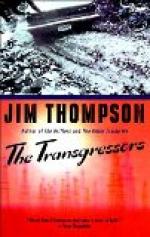“The Cotton King, Herod Butcher of Fall River, who thrives on the life’s blood of ten thousand minors—pitiable slaves of his looms, is one of the transgressors who must atone for a life-long career as a merciless infanticide.
“No man is so base that he would stand by and see a child ruthlessly slain. Yet the nation stands supinely in the presence of a system of factory labor which tolerates the inhuman employment of children. The hazy halo of legality is between the transgressor and the people; and men remain unmoved.
“It was for humanity’s sake that our countrymen gave their life ungrudgingly on the battle-fields of Cuba. But what of the inhumanity at home? A word spoken against an American manufacturer is a crime in the eyes of the Magnates, and the offender is chastised accordingly.”
“I have three sons who grew to manhood, stunted and untutored, who had to work for their daily bread in the mills of Herod Butcher,” declares Martin Stark, the Rhode Island committeeman.
“Judas D. Savage is another of the transgressors. A hundred flaming oil wells lit by the torch of the incendiary, hired by his gold, wrote his proscription on the scroll of high heaven.
“And Roger Q. Alger, of the defaulting Savings Bank dynasty comes to you recommended by the cries of anguish that have been uttered by thousands of widows, orphans, struggling husbands and provident wives, who have awakened to find their savings distributed as booty to the Barons.
“But what need have I to recount the misdeeds of this list of men. If the first man or woman whom you meet on the street cannot give you a description of them that will stand as an indictment, then consider the men I name innocent!”
He then completes the reading of the list. There is a painful silence when he ceases to speak. The Forty seem absorbed in deep thought. The chairman finally speaks:
“You have heard the reading of the list,” he says. “If it is your desire to substitute names for those mentioned, now is the time to propose the change.”
“I move that the list be adopted as read,” Carl Metz suggests.
“I second the motion,” says Professor Talbot.
Every committeeman votes for the adoption of the list.
The names are written on slips of paper and placed in a hat. As each committeeman passes the table he draws a slip.
“You have all signified your willingness to carry out the terms of the edict of annihilation,” the chairman explains. “It now remains for you to redeem your pledges. If there is one of you who regrets the step he has taken it is not too late to withdraw.”
There is profound silence, and the men stand immovable.
“Two months from to-day then, October 13th, our Syndicate of Annihilation will declare its dividend; this will require the summary taking off of the Forty Transgressors and our self-immolation.” Chadwick pronounces these words slowly, impressively:




